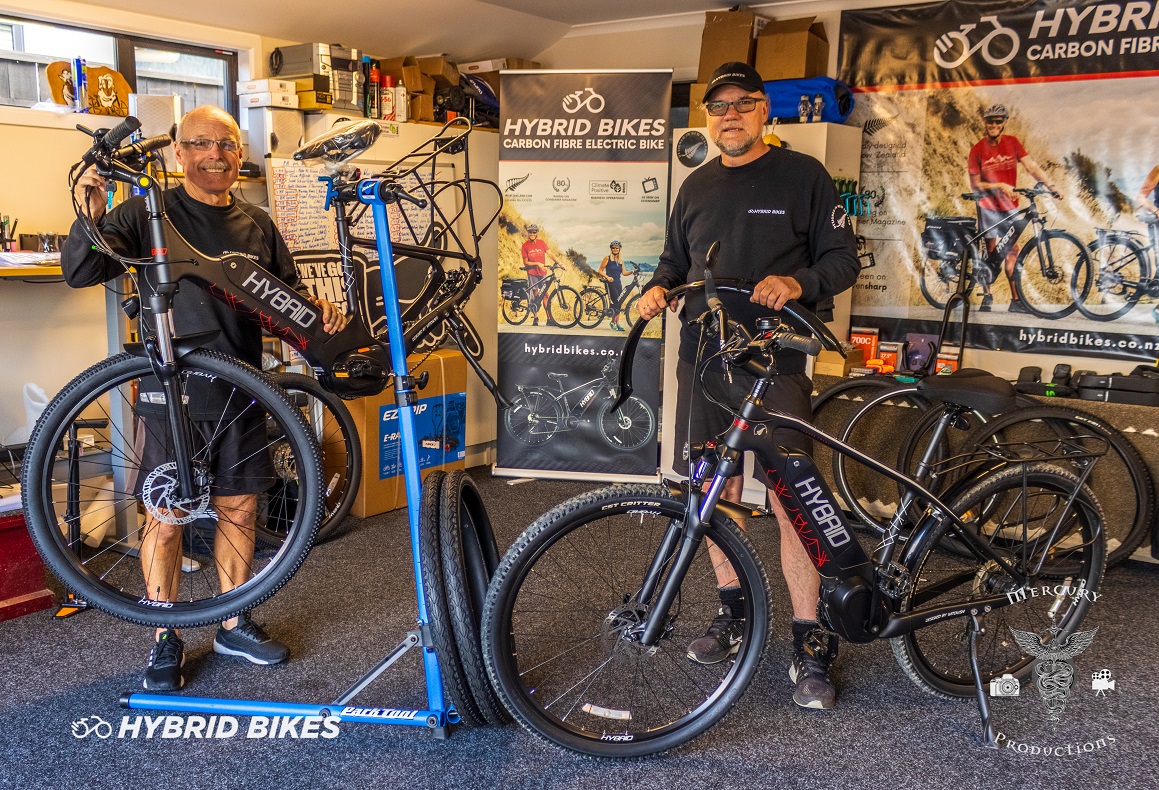Safely navigating business partner relationships
What is the key to enduring business partnerships? What are the warning signs that things aren’t right? NZBusiness went in search of some stellar partnerships and some expert advice.
Entering into a business partnership is not something to do lightly. Although most partnerships are relatively plain sailing, there are those that can quickly sour. What is the key to enduring partnerships? What are the warning signs that things aren’t right? NZBusiness went in search of some stellar partnerships and some expert advice.
It is widely accepted that a solid business partnership shares many of the characteristics of a happy marriage.
Just as a counsellor will tell you that communication is vital in a marriage, so too will a business advisor remind you that it is key to a successful business partnership. If communication is breaking down, then it is a major early-warning sign that the partnership is in trouble.
Mark Trafford, who jointly owns property maintenance company Maintain To Profit (MTP) North Shore with Dean Larritt, agrees with the marriage comparison and that communication and trust are the overriding factors for a successful business partnership.
“Often you’re both so busy you become ships passing in the night. It’s very important to have weekly meetings and reviews. We also set five year, three year and one year goals with our business mentors and accountants, and review them regularly.
“Plus, after six years, which is too long, we’ve recently made the decision to review our shareholders agreements and insurances again,” says Mark.
Mark and Dean (pictured above) agree that, just like potential marriage partners, opposites attract. Their partnership thrives because they come from different backgrounds (corporate and trades respectively) and have different strengths. There’s 12 years difference in their ages, which means connecting and interacting with a wider range of suppliers and clients, and they have complimentary skillsets. So each partner brings considerable value and experience to the business.
“I’m very entrepreneurial and prefer to go at a hundred miles an hour on everything,” admits Mark. “I’m always coming up with new ideas – some good, some not so good. Dean is operational, wants to have robust discussions, measures and tests ideas, looks at the numbers, plays devil’s advocate, and so that’s a great combination.”
Having said that, both partners understand that if a particular skillset or role is not being fulfilled, then they must seek that skill outside the business.
Shared standards of integrity, honesty, morals and values are also important in a partnership, as is the desire for flexibility when it comes to spending time with family.
“Like any marriage there will be cross words, but we’ll always come back to the table,” says Mark. “There’s no steam rolling, because that can lead to poor decisions. We have a written rule that says if both of us don’t agree on something, then we don’t do it. That includes everything from staff, to plant, to business – all decisions. This forces us to take our time and lay out solid business logic that we both can then understand and logically base good decisions on,” he says.
“It’s important to have roles and responsibilities clearly laid out and to review those regularly as your business evolves and grows.”
Mark and Dean have now jointly set up 11 MTP licences across Auckland, Hamilton, Tauranga and Wellington, with the North Shore business the brand’s $4 million flagship. You could rightly say there’s a lot riding on this partnership. And, of course, both exit and continuity plans should always be in place and kept updated.
But all things considered, it’s looking pretty rock solid. Mark and Dean are like-minded. They fundamentally want the same things out of life, are good friends outside the business, and are family focused – even spending holiday time together.
“Our families are really close and our kids are great mates too,” says Mark.
Start off prepared
Every partnership deserves a solid foundation. Kylie Hollard, director business advisory services at Baker Tilly Staples Rodway in Taranaki, says while there may be a lot of costs before you start a business partnership, setting it up correctly can lead to less costs in the future and a business that will run smoothly.
“Look for any warning signs early on and listen to them. There are always going to be hurdles and changes along the way; you can’t help that but minimising these is key.”
It’s wise to have a legal agreement drawn up to refer to if a partnership doesn’t work out, she says.
“If you have a company structure you would get a lawyer to prepare a shareholder agreement, but in a partnership you could draw up your own agreement. Otherwise you are covered under the default Partnership Act 1908.”
Hollard says it’s not uncommon for businesses to be started with little planning and ground rules, which can lead to unmet expectations and frustrations.
“Common red flags are differing financial goals, conflicting working styles and ethics, and unbalanced roles in the business such as workload, authority or responsibilities.
“On their own, these differences won’t necessarily mean an immediate end to the partnership – however, they can prompt you to think about the long-term viability and success of it.”
There can be financial warning signs that a business partnership is in trouble, adds Hollard, “such as lack of cashflow, failed product, lack of customers, and so on. But the impact of these can be minimised by getting the correct advice”.
“It is good to have a business mentor or business coach that can help you with the tough decisions or potential disagreements. What may seem to be a problem can sometimes be easily solved with help from your accountant.”
When should you revisit your partnership?
Make sure you have a few good years of strong trading before considering inviting more investors or partners into your business. If you do this too early then it may cause more headaches, says Hollard.
“You need to be clear on the direction of your business and what you want to achieve. Ask yourself, how quickly will the business grow? What resources do I need? Who is going to be part of it? What people do I need in the team to achieve this?”
One of the best indicators of the need to look at a business’s ownership is when the workload is getting too much for the current owners, there has been significant growth, or you have diversified and need additional skills, Hollard explains.
“Other times can be when you need to retain key personnel or you are looking at succession.”
A partnership based on honesty and trust
New Zealand’s business sector is peppered with outstanding examples of business partnerships.
Auckland-based workforce training consultancy Upskills is steered by a dynamic partnership that has weathered the typical highs and lows associated with a business startup.
Sarah Balfour and Holly Patterson both had varied backgrounds, primarily in adult education, and were working together for the same training provider before branching out on their own in (insert date)
“The desire to start a business that makes a real difference was the genesis of Upskills,” recalls Holly, “alongside other factors such as flexibility and decision making control.”
The business started with one client contract. Sarah and Holly set up the partnership as equal stakeholders from the outset. “We were passionate and clear about our vision to deliver quality in workplace literacy and numeracy programs,” says Holly.
Like many small Kiwi businesses they spent many hours around kitchen tables tackling the big, and small, decisions that come with setting up a partnership – from deciding on a company name and logo through to staffing and HR considerations.
“One of the reasons why we work so well is that we had worked together in a business setting before. We knew each other’s strengths and edges, and are friends,” explains Sarah.
“And although we know what everyone says about going into business with friends, actually from the outset we have respected our friendship alongside Upskills, and it’s a key part of our strength.
“We think it works well because we can be really honest with each other and we value open communication. We can talk about the hard stuff and celebrate the wins, as well as have those difficult conversations.
“We acknowledge that we’re not the same, but we listen and at the heart of our partnership are shared values. We’ve had to get quite good at zooming out to connect with the bigger picture of what we’re trying to achieve.”
It’s an attitude that’s got them through any potential rocky patches.
Holly says the finances and all the roles and hats that come with the day-to-day running of a business can result in issues. “But when we disagree, we come back to thinking about our participants, our clients, and our values to guide decision making.
“Running it through this framework helps us clarify what’s really important, takes the ego out of it, and reconnects us with the vision and purpose of the mahi (work) that we do. For example, how does this decision impact on quality? On supporting our wider team? On creating a platform to amplify our participants’ voices and ideas?”
Sarah and Holly say if they had to pick one over-arching rule for making a business partnership succeed, it would be to build that partnership in a type of business you absolutely love.
Which is exactly what they did.
Perfect alignment
Aligning yourself with a business partner who has the exact same drive and passion for the business as you – that’s the number one rule for a successful business partnership, according to
Sue Smith-Howard and Dr Abysinia Sibanda of New Plymouth-based Absolute Radiology.
Both partners had been working in clinical environments prior to starting the business.
“We are equal partners,” says Sue. “We created several business models and plans before we were happy with the final result. It works well because of the simplicity of the set up and ultimately the transparency this brings. Day to day decisions can be made in a timely manner.”
Sue says there have been no rocky patches in their partnership to date, and puts that down to the ongoing belief in the business plan and the overall driving concept behind the business’s establishment.
“The ability to back ourselves means the challenges are easier to overcome,” she adds.
Both Sue and Abysinia agree that a partnership success hinges on aligning yourself with someone who has the same ethics, values and focus, as well as a solid knowledge of the business.
Absolute honesty and openness are additional keys to success.
Business options: Which structure for you?
Should you trade as a company, partnership or sole trader? Your choice depends on the number of business owners, whether you require investors, or want to sell the business in the future.
The level of expenditure and financing required are other considerations.
- A Company is useful for multiple owners, especially if you want to sell it in the future (whole business or shares), and a good structure if you need bank debt to fund the business. You’re not personally liable for any debt unless you provide a personal guarantee but you are personally liable if you’re careless as a director.
It’s easy to buy and sell shares in a company structure, however there’re more compliance and legal obligations under the Companies Act.
- Partnerships can also have multiple owners but each partner is personally liable for any partnership debts, putting their personal assets at risk. If you add new partners or partners leave, there are complex tax requirements which can be time consuming.
The financial reporting requirements are less and it’s easier to cease a partnership in full than it is a company. As long as any losses incurred are not from residential rental they can be offset against personal income, whereas in a company they are retained and offset against future income.
- A Sole trader is a simpler and cost-effective structure. It has the lowest tax compliance costs but is only for an individual. You are personally liable for any debts.
Source: Baker Tilly Staples Rodway
10 rules for a successful partnership
1. Set your vision, your “reason for being” and regularly refer to it.
2. Get sound financial advice and listen to it.
3. Remember to plan and develop a strategic/business plan.
4. Set goals and key performance indicators (KPIs) and measure against them.
5. Communicate!
6. .Invest in your employees and recruit the right people.
7. Set the right culture.
8. Look after your customers and know your market.
9. Think about growth and adapt to change.
10. Look after your community.
Source: Baker Tilly Staples Rodway
Story by Glenn Baker, editor of NZBusiness.




